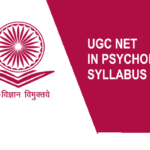The innate human drive to explore, discover, and understand the world around us forms the foundation of exploratory behaviour and curiosity. These essential aspects of human nature have been studied by psychologists to uncover the motivational factors that propel individuals to seek new experiences, knowledge, and challenges. In this blog, we will delve into exploratory behaviour and curiosity, examining Zuckerman’s sensation-seeking theory, motivational competence, self-regulation, and the concept of flow. Each of these elements contributes to our understanding of the intricate interplay between curiosity and motivation.
- Zuckerman’s Sensation-Seeking Theory: Marvin Zuckerman’s sensation-seeking theory posits that individuals vary in their need for novel and intense experiences. Sensation seeking is characterized by the seeking of varied, complex, and intense sensations and experiences. Zuckerman identified four components of sensation seeking:
• Thrill and Adventure Seeking: The desire for excitement and adventurous experiences.
• Experience Seeking: The pursuit of novel and unconventional experiences.
• Disinhibition: A tendency to seek out social and sensory stimulation without concern for consequences.
• Boredom Susceptibility: A low tolerance for monotony and a need for constant change.
Sensation seekers are motivated by the thrill of the unknown and the excitement of pushing boundaries, reflecting a strong connection between curiosity and the pursuit of novel experiences.
- Achievement, Affiliation, and Power Motivational Competence: David McClelland proposed the concept of motivational competence, suggesting that individuals are motivated by different needs for achievement, affiliation, and power. These motivations influence behaviour in various domains:
• Need for Achievement: Drives individuals to excel, surpass challenges, and achieve personal goals.
• Need for Affiliation: Motivates social interactions and the desire for harmonious relationships with others.
• Need for Power: Involves the desire to influence, lead, and control others.
Exploratory behaviour can be driven by the need for achievement, the desire for social connections, or the pursuit of power, each shaping individuals’ engagement with the world around them.
- Self-regulation: Self-regulation involves the ability to control and direct one’s thoughts, emotions, and behaviours to achieve desired outcomes. It plays a crucial role in exploratory behaviour and curiosity by enabling individuals to set and pursue goals, resist distractions, and overcome obstacles.
• Goal Setting: Individuals with strong self-regulation skills set clear goals for exploration and curiosity, guiding their actions.
• Persistence: The ability to persevere in the face of challenges enhances one’s capacity for sustained curiosity and exploration.
• Adaptability: Flexibility in adjusting strategies and approaches facilitates effective exploration.
As a foundational aspect of motivational competence, self-regulation enables individuals to channel their curiosity constructively and navigate the complexities of the unknown.
- Flow: Flow, as conceptualized by Mihaly Csikszentmihalyi, is a state of optimal experience where individuals are fully immersed and absorbed in an activity. This concept aligns closely with exploratory behaviour and curiosity, as the characteristics of flow include:
• Clear Goals: Well-defined objectives provide a sense of purpose and direction.
• Immediate Feedback: Continuous feedback allows individuals to adjust their actions in real-time.
• Challenging Tasks: Activities that are sufficiently challenging but still within one’s capabilities promote the experience of flow.
The state of flow is inherently rewarding and encourages individuals to engage in exploratory behaviour by creating an optimal balance between challenge and skill.
Conclusion:
Exploratory behaviour and curiosity are intricate components of human motivation, influencing our interactions with the world and our pursuit of novel experiences. Zuckerman’s sensation-seeking theory, McClelland’s motivational competence, self-regulation, and Csikszentmihalyi’s concept of flow contribute valuable insights into the factors that drive individuals to explore, seek challenges, and satisfy their curiosity. As we navigate the uncharted territories of our minds and the world around us, understanding these motivational dynamics enhances our appreciation for the richness of human behaviour and the boundless possibilities that curiosity unfolds.








